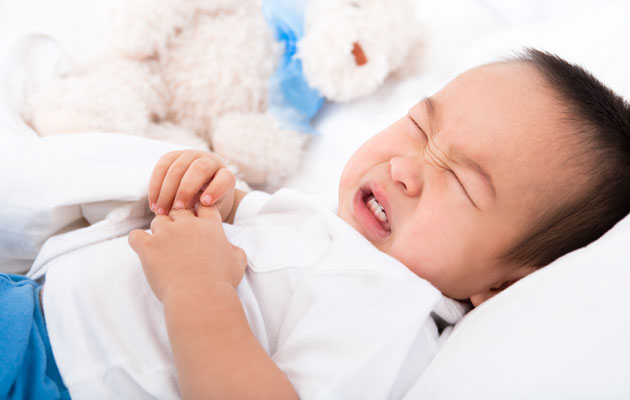


Gastroenteritis is commonly known as "the flu" or "the stomach flu". While both terms make reference to "influenza", they target different areas of the human system. The simple flu affects the respiratory system, whereas the stomach flu defines a viral infection in the digestive tract. Due to its viral and bacterial nature, the illness is often contracted through infected water or improper food. In addition, as the immune system is rather weak during the first years of life, it is no surprise that the most affected patients are of young age. Once they reached the age of 3, their system reboots and, as a result, they will not contract gastroenteritis as often.

As mentioned above, gastroenteritis is an inflammatory condition that targets the lining of the digestive tract. Depending on the infectious agent, the symptoms vary from mild to severe, which could include vomiting, diarrhea, pain in the abdominal area, chills, achiness and fever. The signs usually show 12-72 hours after contracting the disease.
The main cause is infection, which could be caused by viruses (such as Rotavirus), bacteria (such as E-coli and Salmonella) or parasites (such as Giardia). These agents are easily spread from hand to mouth because children tend to play with toys and then put their fingers in their mouth. More important, babies can contact gastroenteritis more easily when they are in day-care, kindergarten, zoos, pools or any other crowded places.
Although it is rarely encountered, allergic condition can also be the cause. A weak immune system may not be able to handle risks posed by allergenic agents present in some foods.
Gastroenteritis in babies is a very common condition with painful symptoms. However, prevention and treatment are affordable and easy to follow.
When dealing with this type of illness, the most important factor is hydration, as one loses more liquids than they take in. Doctors say that simple water is not enough to establish the balance of electrolytes and they recommend oral rehydration solutions or electrolyte solutions which can be bought at local stores. Some say that sport drinks will do the trick for school-aged children and teenagers, but it is not suitable for really young children or babies.
How much: As too much of any liquid may trigger a negative digestive reaction, it is recommended that you feed the baby one teaspoon every 4-5 minutes. It is important to stay away from juices with high-acidity, caffeine-based drinks and milk as they can cause further belly problems.
One should not exclude breastfeeding or formula as they both seem to soothe some of the symptoms. However, contact your doctor to discuss both options before beginning any treatment.
Once the child is able to take in liquids and keep them down, you may start adding bland foods like bread, potatoes, oats and plain yoghurt. You should make sure you always feed the bananas first. Next step is adding cooked meat and vegetables. Spicy, fatty or fried foods are totally forbidden, as they will worsen the symptoms.
It is essential to keep in mind that gastroenteritis in babies should not be treated with over-the-counter drugs. Some medication, such as ibuprofen may upset the baby's bell, whereas acetaminophen may result in liver problems. Antibiotics should be avoided all the way. Anti-diarrhea medicine will make the infection last longer. If the baby comes down with fever, they may be given ibuprofen or an anti-inflammatory drug to get the temperature down.
As soon as signs show up, you should report your children's discomforts to your pediatrician, especially if the child is less than 6 months old. If the symptoms include excessive sleepiness or fuzziness, frequent dry diapers, dry lips, crying without tears, cool and discolored extremities or wrinkled skin, that means the baby is dehydrated and you should try giving them liquids slowly and in small portions. Along with dehydration, signs such as fever higher than 101°F, blood in the stool, frequent stool (more than once per hour), swollen and hard belly as well as vomit (more than 5 times a day) may be present. If so, get in touch with your pediatrician to start the treatment.
Preventing is much easier than treating. You can prevent it through the following methods: